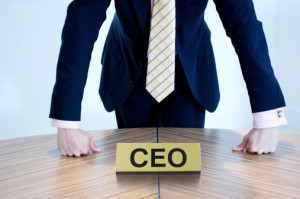 Big company executives are virtually invisible on social networks. Whether it’s CEOs, CMOs, or CIOs only a small number of them are finding time to engage with their peers and their customers on Twitter, Facebook, Google+ and other social networks. Most prefer to leave that to their marketing and PR teams.
Big company executives are virtually invisible on social networks. Whether it’s CEOs, CMOs, or CIOs only a small number of them are finding time to engage with their peers and their customers on Twitter, Facebook, Google+ and other social networks. Most prefer to leave that to their marketing and PR teams.
That said, it seems that executives do realize the value of such an engagement. A survey conducted by Bazaarvoice in the summer of 2012 among 100 Chief Marketing Officers clearly showed that CMOs see value in social media. Over 82% of CMOs believe social data has a measurable impact on brand awareness. Over 89% said that social data has influenced their decisions and 21% of those surveyed said social data affected at least one in five decisions they made.
But it goes beyond business accounts. There are a lot of benefits for the executives to be personally present digitally. Social media help amplify your voice. It offers the opportunity to learn and stay connected to the industry peers. It allows you to create filters that would serve up relevant information in real-time from the people you follow and read. It offers a plethora of competitive intelligence and updates on the latest trends. But most importantly it humanizes the brand and positions executives as the industry authority on the topic (who will the media go to first if the crisis breaks or rumors hit?). And the benefits only grow with participation.
According the study by BRANDfog, “innovative C-Suite and senior executives are at the forefront of social engagement, utilizing social media to attract new talent, deepen brand loyalty, increase purchase intent, and establish brand transparency.” Specifically, survey results demonstrate that 80.6% of respondents believe that social media is an important communication channel for CEOs to engage with customers and investors, 68.7% of respondents believe that C-suite social media engagement enhances the perception that a brand is honest and trustworthy, and 83.9% believe that CEO social media engagement is an effective tool to increase brand loyalty. Executives’ personal engagement was viewed as a gateway to facilitate deeper connections with customers, employees and shareholders.
Ann Charles, CEO of BRANDfog, says: “We are witnessing a fundamental shift in the culture of leadership, brought upon by social media, but sustained by the strategic inventiveness of smart CEOs. While social media is new, the nexus between communication and leadership is not. Many of the world’s greatest leaders—from Winston Churchill to Martin Luther King to Steve Jobs—have been highly skilled communicators. Social media, in all its forms, empowers CEOs to improve their communications skills, deepen their connections with people inside and outside the company, and emerge as more effective leaders.”
Executives who have been engaged socially for a while agree with the statement above. CIO of SAP, for example, Oliver Bussmann, explained to Wall Street Journal why he invests his precious time on social networks like Facebook and Twitter (@sapcio): “Social media gives the CIO a public voice on topics like innovation, business transformation and IT delivery. When we communicate value, IT stops being a black box.”
Kim Stevenson, Intel’s CIO, told me: “Social computing has become the best way to gain and share knowledge. Whether you’ve gained a key insight from a publication, news article, a colleague or a customer, the value of that knowledge can only be enhanced by sharing it. Keeping knowledge in a silo kills velocity.” Incidentally she walks the talk: she is very active on Twitter (@Kimsstevenson) and loves to engage with new folks in the industry on social networks.
Not only that, Kim found Twitter a rather useful tool for connecting with the employees in her organization. Just last week an Intel IT employee way down her organization sent her a tweet saying he just finished building his first mobile app. Even though it was late at night, she immediately responded with the virtual high-five. “I likely now know more about the work that he is doing than his entire management chain who have not taken to the social frontier,” she said. And just imagine what this simple praise and words of encouragement in a short tweet means to the employee himself.
Richard Branson, the founder of Virgin Group, told Mashable in an interview that social engagement is important to him because “…there are so many Virgin companies globally who each do different things, and my current focus is philanthropy. While I’m still active with the companies, I spend a great deal of time with Virgin Unite and have seen how social media can spread awareness about how we use business as a force for good. It also allows me to share the lessons I’ve learned in business, as people are always keen to find ways to be better at what they do.”
Perhaps it’s time C-Suite executives begin to realize the power of their own personal social engagement in creating authenticity and transparency, communicating company mission, and building brand loyalty.
Originally posted in Fast Company
